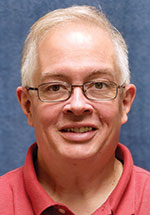Reflection / Sean Gallagher
Despite freeing of captives, suffering of Church in Nicaragua continues

“If one part [of the body] suffers, all the parts suffer with it; if one part is honored, all the parts share its joy” (1 Cor 12:26).
St. Paul wrote this statement some 2,000 years ago in a letter to the Christians in Corinth about the unity of the Church as Christ’s mystical body.
The truth of these words has been witnessed to in recent days as two bishops, 15 priests and two seminarians who had been unjustly imprisoned in Nicaragua were released on Jan. 14 and sent to Rome through diplomatic efforts by the Vatican.
Catholics around the world can rejoice that these faithful witnesses to Christ are now free. They can also take rightful pride for the reason why the government of Nicaraguan dictator Daniel Ortega saw them (falsely) as a threat.
These men openly criticized the human rights abuses perpetrated by the government. Ultimately, though, the Ortega regime fears most the consistent public witness that the Church and these men give to Gospel values and how the Christian people working together with the help of God’s grace are a firm foundation of a just society.
This is why, in addition to imprisoning these clergy and seminarians, the Nicaraguan government has shut down Catholic radio stations, closed Catholic universities and expelled members of St. Teresa of Calcutta’s Missionaries of Charity and other religious orders.
Ortega fears the people of his country being swayed by this alternative way of living as a society, one that is based on human dignity rooted in seeing people as made in the image and likeness of God.
That is why Bishop Rolando Álvarez of Matagalpa, Nicaragua—at the center of the group of clergy and seminarians freed on Sunday—had been unjustly convicted of treason and held in captivity for more than 500 days. It was his courageous and consistent witness to the Gospel and against the government’s abuses that Ortega feared the most.
In recent weeks, it appeared that even mentioning Bishop Álvarez’s name in public was a crime. Bishop Isidoro Mora of Siuna, Nicaragua, was arrested on Dec. 20, the day after he had publicly prayed for him by name in a Mass in the cathedral of Matagalpa.
While having these bishops, priests and seminarians freed from their unjust imprisonment is cause for all Catholics to rejoice, it must be remembered that Catholics across Nicaragua continue to suffer.
So, as the Church there suffers, so does the rest of the mystical body of Christ around the world. According to PillarCatholic.com, more than 110 priests, around 15% of the country’s clergy, have been forced into exile since 2019. The Diocese of Matagalpa has arguably suffered the most—the number of its current priests dropping to around 20 from the 51 it had just five years ago.
The terms under which Bishop Álvarez, Bishop Mora and the rest were freed on Sunday remain unclear as this newspaper goes to print.
But one thing is known. Ortega has rid himself—at least in Nicaragua itself—of these Christian witnesses who are inconvenient to his continued dictatorial rule.
Given the continued exile of clergy from Nicaragua, it can seem that the Ortega regime is slowly succeeding in picking apart the leadership of the Church there piece by piece.
Prayers for the suffering Church in Nicaragua are needed now more than ever.
But this is not a moment to lose hope. As some clergy are forced into exile, others are ordained. Nine men were ordained as priests for the Archdiocese of Managua, Nicaragua, on Jan. 6, in the midst of this time of persecution there.
In any case, the witness of the saints from the Church’s earliest days to those seen under communist governments in eastern Europe in the second half of the 20th century assures us that the consciences of the people of God, awakened and sustained by Gospel values, cannot be chained and will ultimately triumph in God’s good time.
(Sean Gallagher is a reporter for The Criterion.) †
